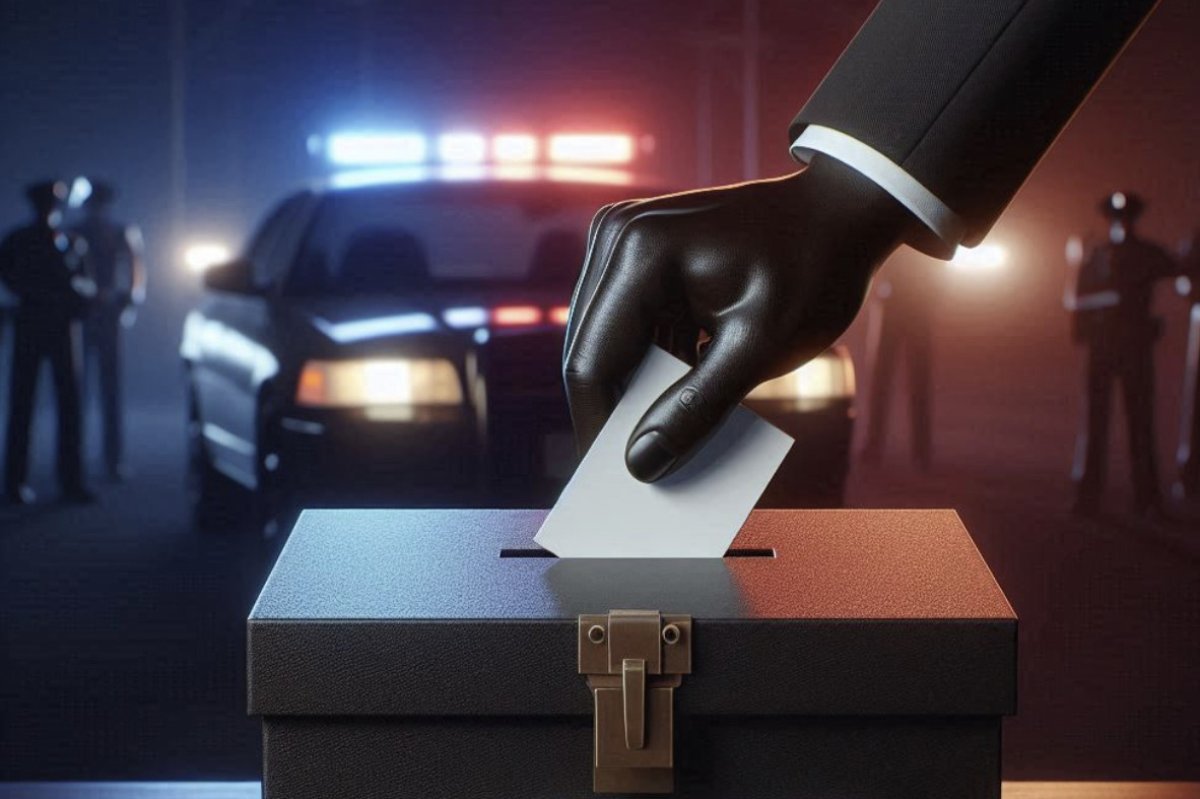On Election Day, Tuesday morning, state and local officials responded to bomb threats reported at polling sites in Fulton County, Georgia.
The threats were deemed “non-credible,” according to officials, and polling locations in Georgia’s most populous county remain secure for Election Day.
Georgia Official Blames Russia for Bomb Threat Hoax
Georgia Secretary of State Brad Raffensperger said officials believe the bomb threats came from Russia.
“They’re up to mischief, it seems. They don’t want us to have a smooth, fair and accurate election, and if they can get us to fight among ourselves, they can count that as a victory,” Raffensperger said in a stateent. “That tells you a little bit about the Russians. They’re not our friends. Anyone that thinks they are hasn’t been reading the newspapers.”
Officials are concerned about voter intimidation in Georgia due to reports of activities that may intimidate or discourage voters from casting their ballots. In recent years, Georgia has seen a rise in reports of armed individuals and groups at or near polling locations, aggressive questioning of voters, and other tactics that could dissuade voters or make them feel unsafe. With Georgia often a key battleground in national elections, officials are particularly focused on preventing any attempts to interfere with the voting process.
Steps have been taken to increase law enforcement presence and ensure a secure, accessible voting environment. Additionally, nonpartisan groups and government agencies are educating the public about their voting rights to counter any intimidation tactics that may arise.
Voter Intimidation in Georgia: A History
Georgia, like much of the South, has a complex history of voter intimidation and suppression that dates back to the Reconstruction era following the Civil War.
Efforts to intimidate Black voters began as soon as African Americans gained the right to vote, with tactics ranging from threats of violence by groups like the Ku Klux Klan to discriminatory practices such as literacy tests, poll taxes, and grandfather clauses that effectively barred Black citizens from voting.
During the Civil Rights Movement of the 1950s and 1960s, Georgia saw protests and activism aimed at ending these practices.
The Voting Rights Act of 1965 was a significant victory, outlawing many discriminatory practices and requiring certain states, including Georgia, to receive federal approval before changing voting laws. However, voter suppression efforts continued in more subtle forms, such as gerrymandering, restrictive voter ID laws, and purging voter rolls.
In more recent years, Georgia has faced scrutiny over issues like long wait times at polling places in minority communities, stricter voter ID requirements, and alleged voter roll purges.
In the 2020 election cycle, reports of potential voter intimidation increased, with armed groups and individuals appearing at or near polling sites. This history, combined with ongoing reports of these issues, has led officials to stay vigilant against voter intimidation to ensure a safe and accessible voting environment.
Here are more articles from AtlantaFi.com:





